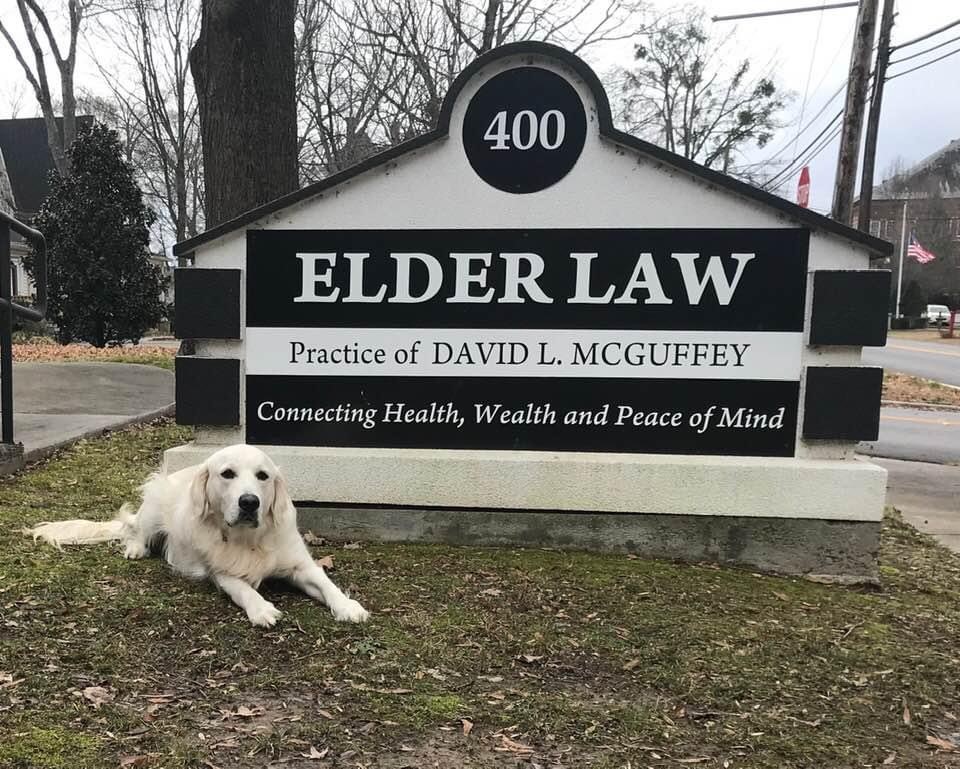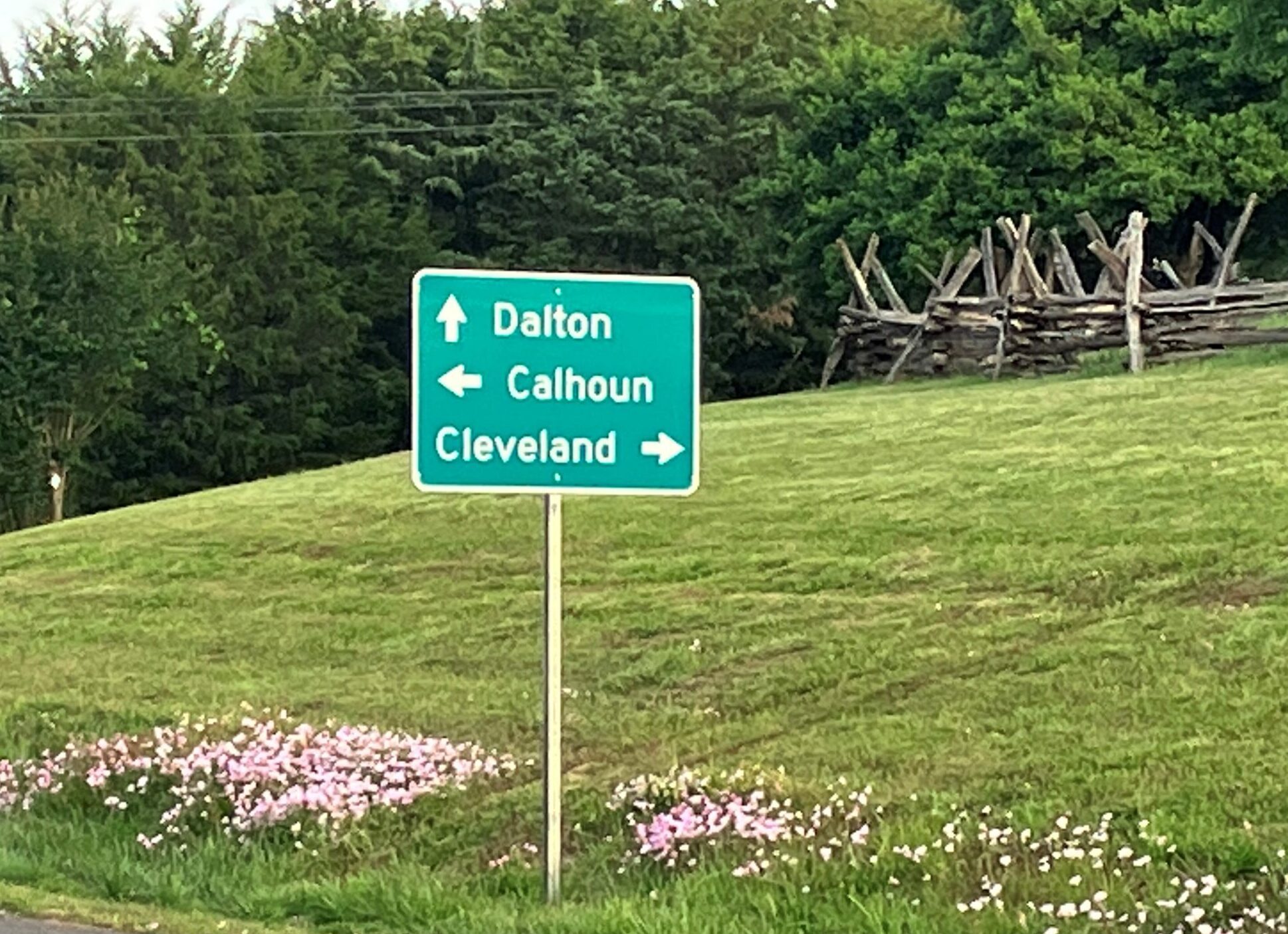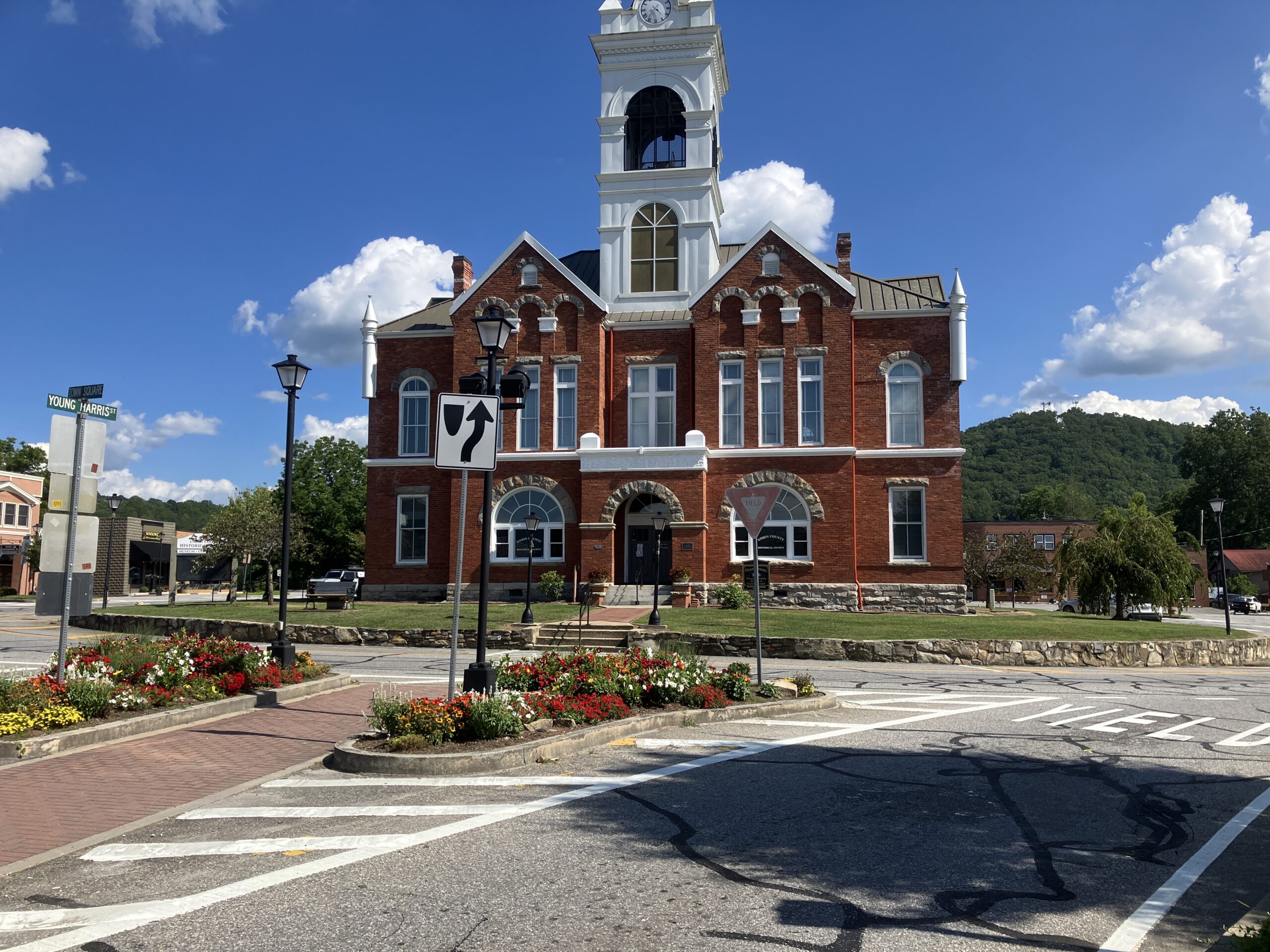Eldercare Resources
The Elder Law Practice of David L. McGuffey. We are a full service law firm, focusing our practice on the needs of elders and individuals with special needs. Our main office is in Dalton, Georgia, but we serve special needs families throughout Georgia and Tennessee. If you want to know more about our practice, visit our website at www.mcguffey.net or call (706) 428-0888.
Video: RCI 2018 Summit: Segment 2: Legal Planning For The Future
Video: Paying for Long Term Care Part 1
Video: Paying for Long Term Care Part 2
Video: Paying for Long Term Care Part 3
Video: Paying for Long Term Care Part 4
Video: Paying for Long Term Care Part 5
Video: Paying for Long Term Care Part 6
Video: How to Prepare for Your Future (with Dan Combs)
Watch the Video from our 2016 Conference on Representing Individuals with Diminished Capacity
Visit EZ Elder Law
Finding Information: The linked document is a short list of sources we prepared to help you find information.
Medicare.gov. – Official website for the Centers for Medicare and Medicaid Services. Most significant information regarding Medicare coverage is discussed in an annual publication called “Medicare and You.”
ElderCare Locator – The Eldercare Locator is a public service of the U.S. Administration on Aging connecting you to services for older adults and their families.You can also reach them at 1-800-677-1116.
Georgia Division of Aging Services. The Division of Aging Services (DAS) coordinates with other aging organizations to provide services to appropriately sustain older Georgians in their homes and communities. These services also provide support to family members and caregivers. The Division of Aging Services (DAS) administers programs through the Area Agencies on Aging (AAAs). Contact your local AAA for more information and to find if the service is available in your region.
Georgia Department of Veterans Service. The GDVS will assist you for free in filing an application for VA Aid and Attendance. You can apply at any field office. Most of the information you will need to take with you is listed at VeteranAid.
Georgia Medicaid. The Department of Community Health (DCH) is Georgia’s Medicaid agency. However, DCH does not handle Medicaid applications. It has a contract with the Department of Family & Children Services (DFCS), so you actually apply for Medicaid online or at the DFCS office. If you want to know, in general terms, which classes of assistance might help you, the following guide is available online: 2015 Benefits Guide for Older Georgians.
Georgia Medicaid Manual. The Elder Law Practice of David L. McGuffey maintains an “unofficial” version of the Georgia Medicaid Manual which you can access HERE. The Official version of the manual is HERE. If you want to know more about trusts and special needs trusts, then click HERE.
Aging Life Care Association. Aging Life Care / geriatric care management is a non-legal holistic, client-centered approach to caring for older adults or others facing ongoing health challenges. Working with families, the expertise of Aging Life Care Professionals™ provides the answers at a time of uncertainty. Their guidance leads families to the actions and decisions that ensure quality care and an optimal life for those they love, thus reducing worry, stress and time off of work.
Northwest Georgia Area Agency on Aging and Disability. The AAA provides information regarding elder services, advocacy and coordination, and serves as the “gateway” for the Community Care Service Program (CCSP). Other services are listed on the AAA web page.
Benefits.gov. This web page assists individuals in locating federal, state and local benefits available in your area. The National Council on Aging also maintains a website that assists you in finding available benefits. That website is Benefitscheckup.org.
Georgia Legal Aid. Seniors who cannot afford an attorney, who have low assets or low income, may qualify for assistance through Georgia Legal Aid.
Elder Law Prof Blog. This is a blog maintained by law school professors who teach elder law.
Senate Special Committee on Aging. The U.S. Senate frequently investigates important issues that impact elders. Most hearings are available online, along with written submissions from those who testify.
Top 10 Scams Targeting the Elderly. The National Council on Aging lists the top ten scams targeting the elderly. The FBI maintains another helpful page describing scams on the elderly. Other helpful sites include the U.S. Postal Service and the IRS.
Georgia POLST. A physician order for life sustaining treatment is a medical order that aims to enable seriously ill patients to designate the treatment they want (or don’t want) and to ensure that patient preferences are honored.
Georgia DMV Form T-20 – Affidavit of Inheritance. Used in small estates to convey vehicles when there is no other reason to open a probate estate.
State Bar of Georgia. The State Bar of Georgia Rules and Regulations, found in the Handbook, serve as a guide for bar members, officers and staff. According to the Handbook, the State Bar exists “to foster among the members of the Bar of this State the principles of duty and service to the public; to improve the administration of justice; and to advance the science of law.” All persons authorized to practice law in this state are required to be members.
U.S. Consumer Financial Protection Bureau, Guides for managing someone else’s money. The CFPB has produced four downloadable guides on the following issues: (1) serving as agent under a power of attorney; (2) serving as a court appointed conservator; (3) serving as trustee; and (4) serving as VA representative payee. If you are serving as a Social Security Representative payee, the SSA website includes a page discussing your responsibility When People Need Help Managing Money.
Dementia Friendly America. This website is designed to train communities and community leaders on the development of dementia friendly communities. It includes a description of what “dementia friendly community” means, tools and resources, and a search tool. It includes sector guides designed to begin the process of educating various community stake holders on how to develop dementia friendly practices.
Georgia DHS 2016 Benefits Guide for Older Georgians. Available at https://www.mcguffey.net/pdf/DHS_2016_Benefits_Guide_for_Older_Georgians.pdf.
IRS Letter stating that EINs are unnecessary for QITs.
Surety Bonds:
- State Farm
- Surety Bonds Direct
- Viking Bond Services, Surety bonds for guardians, trustees and other fiduciaries (We have no experience with this company)
- List of Certified Companies (U.S. Dept. of Treasury)
Selling timeshares: https://timeshareexitteam.com/ (We have no experience with this company, but it is Dave Ramsey approved)
Improving Chronic Illness Care
Prepare for Your Care. This resource includes health values worksheets and other tools to help you plan in advance for your care if you cannot make your own health decisions.
Making Medical Decisions for Someone Else. This is a guide prepared by the American Bar Association regarding how to make health care decisions for someone else.
Get Vital Records (CDC website)
Assistance with payroll taxes at https://www.care.com/homepay
Special Needs Resources
The Elder Law Practice of David L. McGuffey. We are a full service law firm, focusing our practice on the needs of elders and individuals with special needs. Our main office is in Dalton, Georgia, but we serve special needs families throughout Georgia and Tennessee. If you want to know more about our practice, visit our website at www.mcguffey.net or call (706) 428-0888.
H. Wright, The Complete Guide to Creating a Special Needs Life Plan. (paperback, available at amazon.com)
Annie E. Casey Foundation. The Annie E. Casey Foundation is a private charitable organization “dedicated to helping build better futures for disadvantaged children in the United States.” The Foundation’s website has a Knowledge Center that includes publications and other resources that have been developed by Casey or one of their grantees. There are several publications and videos, including The Money Trap and I Know Where I’m Going (But Will My Cash Keep Up?): Parts I & II, that include valuable information and activities that introduce and reinforce financial education topics. For more information, visit http://www.aecf.org/
Babies Can’t Wait (BCW) is Georgia’s statewide interagency service delivery system for infants and toddlers with developmental delays or disabilities and their families. BCW is established by Part C of the Individuals with Disabilities Education Act (IDEA) which guarantees all eligible children, regardless of their disability, access to services that will enhance their development. https://www.bcw-bibs.com/
KnowledgeCenter Budgets Are Sexy: Where Financial Nerds Are Cool. “Budgets Are Sexy is a personal finance blog that won’t put you to sleep.—Benjamin Franklin.” The blogger, J. Money, started writing five years ago (when he was in his 20s) and has fun covering such topics as budgeting, good giveaways, a life list, recommended things to spend money on, and other great financial resources. To read and contribute to the blog, visit http://www.budgetsaresexy.com.
Consumer Financial Protection Bureau. The Consumer Financial Protection Bureau (CFPB) is a new federal agency that is responsible for regulating consumer protection with regard to financial products and services. CFPB is concerned about such areas as credit discrimination, pay day lending, making sure people understand their right to see credit reports, debit and ATM overdraft coverage, and gift card terms and conditions. For more information, visit their website, http://www.consumer_nance.gov.
Georgia Advocacy Office. A private non-profit corporation. Its mission is to work with and for oppressed and vulnerable individuals in Georgia who are labeled as disabled or mentally ill to secure their protection and advocacy. GAO’s work is mandated by Congress, and GAO has been designated by Georgia as the agency to implement Protection and Advocacy within the state. http://thegao.org/
JumpStart Coalition for Personal Financial Literacy. The JumpStart Coalition for Personal Financial Literacy is a coalition of organizations that share an interest in advancing financial literacy among students. JumpStart’s online clearinghouse has a very comprehensive collection of financial education resources, including booklets and pamphlets on specific topics, activities, on-line games, and teacher lesson plans. For more information, visit http://jumpstart.org.
Money Smart. A Financial Education Program Created by the Federal Deposit Insurance Corporation (FDIC), Money Smart is a comprehensive financial education curriculum that teaches the basics of handling money and finances, including how to budget, save money, and how to avoid making “wrong” decisions that may result in years of financial pain. The curriculum is available free of charge. For additional information, call toll-free 877-275-3342 or go on-line to http://www.fdic.gov/consumers/consumer/moneysmart/index.html.
Muscular Dystrophy Association http://www.mda.org/
MyMoney. MyMoney.gov is the U.S. government’s website dedicated to financial education. Resources are available to learn about budgeting, credit building, financial planning, understanding privacy issues, saving and investing. There are links to other government programs that offer financial educational programs, such as Consumer Financial Protection Bureau and the Federal Trade Commission. For more information, visit www.mymoney.gov or call 1-888-MyMoney (696-6639).
National Foundation for Credit Counseling. As the nation’s largest financial counseling organization, NFCC provides information about non-profit credit counseling agencies. For more information, go to http://www.nfcc.org.
Navigate Life Texas. This is a unique website that includes a roadmap for planning the future with your special needs loved one. Although the services described are in Texas, the ideas discussed there apply to special needs families located everywhere. https://www.navigatelifetexas.org
Parent to Parent of Georgia. Parent to Parent of Georgia offers a variety of services to Georgia families impacted by disabilities or special healthcare needs. http://p2pga.org/. P2P’s website includes a roadmap to success, located at http://roadmap.p2pga.org/.
Protected Tomorrows. A financial planning firm that enhances the lives of people with special needs through a comprehensive life planning process. It creates Future Care Plans™, which address the needs of the individual with developmental disabilities, mental illness, physical disabilities, or cognitive and neurological diseases. http://protectedtomorrows.com/
Special Needs Alliance. A national, non-profit organization committed to helping individuals with disabilities, their families and the professionals who serve them. http://www.specialneedsalliance.org/
Tax Assistance (VITA) program. For more information, visit their website www.pathwayspa.org or call 610-543-5022.
Practical Money Skills for Life. To help people learn about the essentials of personal finance, Visa has partnered with consumer advocates, educators and financial institutions to develop the Practical Money Skills programs. You can access free educational resources, including personal finance articles, lesson plans, and games (including the popular Financial Football and Soccer games) from their website, www.practicalmoneyskills.com.
Special Needs Rendezvous. This is a Facebook page administered by the Elder Law Practice that serves as a clearing house for news, tips, resources, events and other information for the special needs community. https://www.facebook.com/georgiaspecialneedslaw?ref=hl
Special Needs Resources/Georgia. http://www.snrproject.com/Resource/Links/Georgia
State and Local Government websites http://www.statelocalgov.net/
The Arc http://www.thearc.org/
United Cerebral Palsy http://ucp.org/
U.S. Department of Health & Human Services http://www.hhs.gov/
























